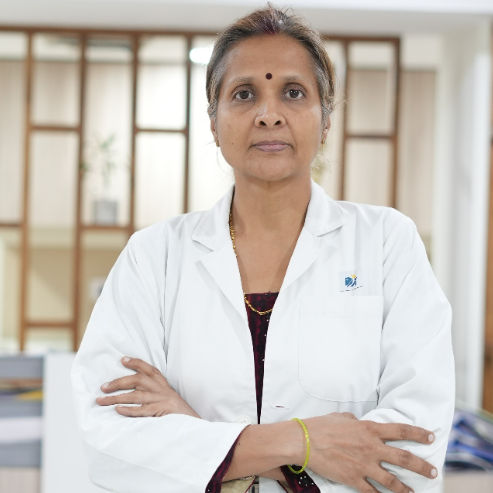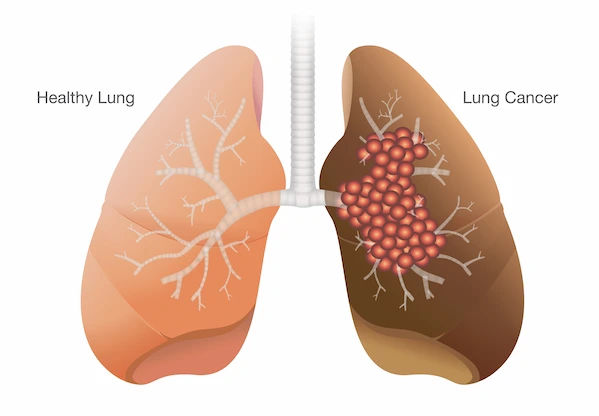Early Detection of Breast Cancer
Early detection of breast cancer saves lives. Learn about risk factors, signs, screening methods, diagnostic advances, treatment options, and support here.

Written by Dr Sonia Bhatt
Last updated on 3rd Jul, 2025
Breast cancer is one of the most common cancers worldwide, affecting both men and women. It occurs when cells in the breast grow out of control. In 2022, the World Health Organization (WHO) reported over 2.3 million new cases worldwide.
Early detection is key to treatment, which includes tracing and stopping the infection before it spreads. When detected early, treatment options are more effective, and survival rates are higher. Regular screenings and awareness of risk factors can be a lifesaver.
In this article, we will explore the risk factors, early signs, and screening methods. It also covers treatment options and ways to lower your risk. Learn how early diagnosis and the right support can make a big difference in fighting breast cancer.
Risk Factors and Prevention
Certain factors can increase your risk of getting breast cancer. These are:
- Family History: Having close relatives who have had breast cancer increases your risk.
- Age: Risk increases with age, especially after 50.
- Hormone Exposure: Long-term exposure to oestrogen and progesterone, especially from hormone replacement therapy or early menstruation, can increase risk.
- Genetic Mutations: Inherited genetic mutations like BRCA1 (BReast CAncer gene 1) and BRCA2 (BReast CAncer gene 2) increase the risk of breast and ovarian cancer.
- Personal History of Cancer: Those who have had breast cancer or other cancers (ovarian or colon) are at higher risk.
- Radiation Exposure: Previous radiation therapy, especially in childhood or early adulthood, increases the risk of breast cancer later in life.
Regular screenings and genetic counselling can help identify those who are high-risk and guide them to take proactive measures like surveillance or preventive treatments.
Lifestyle Changes for Risk Reduction
Ensure to make these lifestyle changes:
Maintain a Healthy weight: Obesity, especially after menopause, increases breast cancer risk. Maintaining a healthy weight can reduce this risk.- Exercise Regularly: Physical activity helps maintain a healthy weight and reduces oestrogen levels which can lower breast cancer risk.
- Limit Alcohol: Drinking alcohol in large amounts has been linked to breast cancer risk.
- Don’t Smoke: Smoking increases the risk of various cancers, including breast cancer.
- Eat Well: A diet rich in fruits, vegetables, and whole grains provides nutrients and antioxidants that can support overall health and reduce cancer.
- Pregnancy and Breastfeeding: Pregnancy and breastfeeding reduce the number of menstrual cycles and the resulting exposure to oestrogen and progesterone for several months, lowering breast cancer risk.
Signs and Symptoms
Breast cancer in its early stages doesn’t hurt, but several signs may indicate its presence. Here are the key symptoms
- Lump in the Breast: One of the first signs is painless or tender lumps. Not all lumps are cancerous, but any new growth should be checked.
- Change in Size or Shape: Noticeable change in breast appearance, like asymmetry, could be a sign.
Unexplained Pain: Pain in the breast or nipple with no clear cause. - Skin Changes: The skin may become red, dimpled, or look like the surface of an orange (peau d’orange).
Nipple Discharge: Any unusual discharge, especially blood stains, should be checked by a doctor.
If you see any of these symptoms, visit a doctor. Early intervention is important, even if non-cancerous conditions like cysts or infections can also cause them.
Screening Methods
Mammography is the most common screening method for breast cancer. It uses low-dose X-rays to detect tumours. The good thing about mammography is it can detect tumours before they can be felt. However, it can have false positives and may require unnecessary follow-up.
Ultrasound is often used together with mammography to get clearer images, especially for dense breast tissue. This imaging procedure is more sensitive and may be recommended for those at higher risk or with a family history of breast cancer.
Genetic testing, such as BRCA (BReast CAncer gene) testing, can help identify those at higher genetic risk and guide decisions on preventive measures like increased surveillance or preventive surgery.
Advances in Diagnostic Techniques
Digital mammography has replaced film-based mammography with faster and more accurate results. It can detect smaller tumours, especially in women with dense breasts.
3D mammography uses multiple images from different angles to get a more detailed view of the breast. This reduces false positives and false negatives and gives doctors better clarity.
Apart from these, new technologies like molecular imaging and artificial intelligence (AI) are improving detection rates. AI, for example, is being used to analyse mammograms more accurately to detect cancers earlier than traditional methods.
Interpretation and Implications of Screening Results
A false positive is when the test says you have cancer when you don’t. A false negative is when cancer is missed when it’s there. Both can cause unnecessary stress or a false sense of security, so follow-up tests are important.
If you test positive, further testing, like biopsies or more imaging, will be required. These tests will confirm if the abnormality is cancer and what stage the disease is.
Biopsy Procedures
There are two types of biopsy: needle biopsy, where a small sample of tissue is taken, and surgical biopsy, where a larger sample of tissue is removed. Needle biopsy is less invasive and often done with local anaesthesia.
The patient may feel discomfort during a biopsy, but the procedure is quick. A local anaesthetic is used to numb the area, and a small tissue sample is removed for testing. Most people are back to normal after the procedure.
Treatment Options for Early Detected Breast Cancer
Surgery is the most common treatment for early-stage breast cancer. Options are lumpectomy (removal of the tumour) or mastectomy (removal of the entire breast). The choice depends on the size and location of the cancer.
Non-surgical options are radiation therapy, chemotherapy, and hormonal therapy. These are often used to shrink the tumour before surgery or to remove any remaining cancer cells after surgery. Targeted therapy and immunotherapy are newer options that target specific cancer cells.
Emotional and Psychological Impact
A breast cancer diagnosis can be overwhelming. Acknowledge your feelings and reach out to loved ones or professionals. Counselling and support groups can provide comfort and a sense of community during this tough time.
Additionally, many resources are available, from national organisations like the American Cancer Society to local support groups. These resources offer emotional support and practical help with treatment options.
Conclusion
Screening and knowing your risk factors and symptoms can lead to timely diagnosis and treatment of breast cancer. After all, screening saves lives. Mammography and other screening methods should be part of your regular health checkups, especially if you’re over 40 or have a family history of breast cancer.
Breast cancer awareness is the key to better outcomes. Everyone should be educated about early detection, risk factors, and treatment options. The more we know, the better we can fight this disease.
Consult Top Gynaecological Oncologists
Consult Top Gynaecological Oncologists

Dr Rani Bhat
Gynaecological Oncologist
20 Years • MBBS, MS (Obs & Gyn), MRCOG (UK), Fellowship in Gynae-Oncology (Singapore) Fellowship in Gynae-Oncology & Robotic Surgery (Hong Kong) Diploma in Gynaecological Operative Endoscopy (France)
Banglore
Apollo Cancer Centres HSR Layout, Banglore

Dr. Rupashree Dasgupta. Gynaecological Oncology
Gynaecological Oncology & Robotic Surgery
26 Years • MD(Gold Medalist, CMC Vellore), DGO(Gold Medalist, CMC Vellore),DNB, MRCOG(London), MBBS(FOGSI Gold Medalist in Gynaecology).Specialist in Advanced Laparoscopic & Robotic Surgery, UICC Fellowship in Gynae Oncosurgery(BARTS Cancer Institute, LONDON), da Vinci certified training as ROBOTIC CONSOLE Surgeon(USA), Fellowship Gynae Oncosurgery(TMC, Kolkata)
Kolkata
Apollo Multispeciality Hospitals , Kolkata, Kolkata
(350+ Patients)

Dr. Sai Lakshmi Daayana
Gynaecological Oncologist
18 Years • MBBS, MRCOG
Hyderabad
Apollo Hospitals Jubilee Hills, Hyderabad
(200+ Patients)

Dr Bhawna Garg
Gynaecological Oncologist
26 Years • MBBS, MS, (PGI MS ROHTAK) FELLOWSHIP GYNECOLOGY ONCOLOGY, (CANCER INSTITUTE CHENNAI)
Delhi
Apollo Hospitals Indraprastha, Delhi

Dr. Swati Shah
Surgical Oncologist
15 Years • DNB Surgical Oncology, certified Robotic Cancer Surgeon
Ahmedabad
Apollo Hospitals Gandhinagar, Ahmedabad
(25+ Patients)


